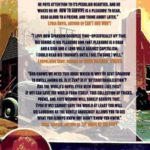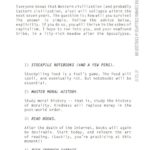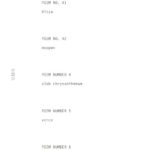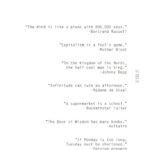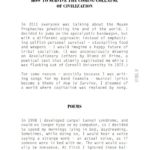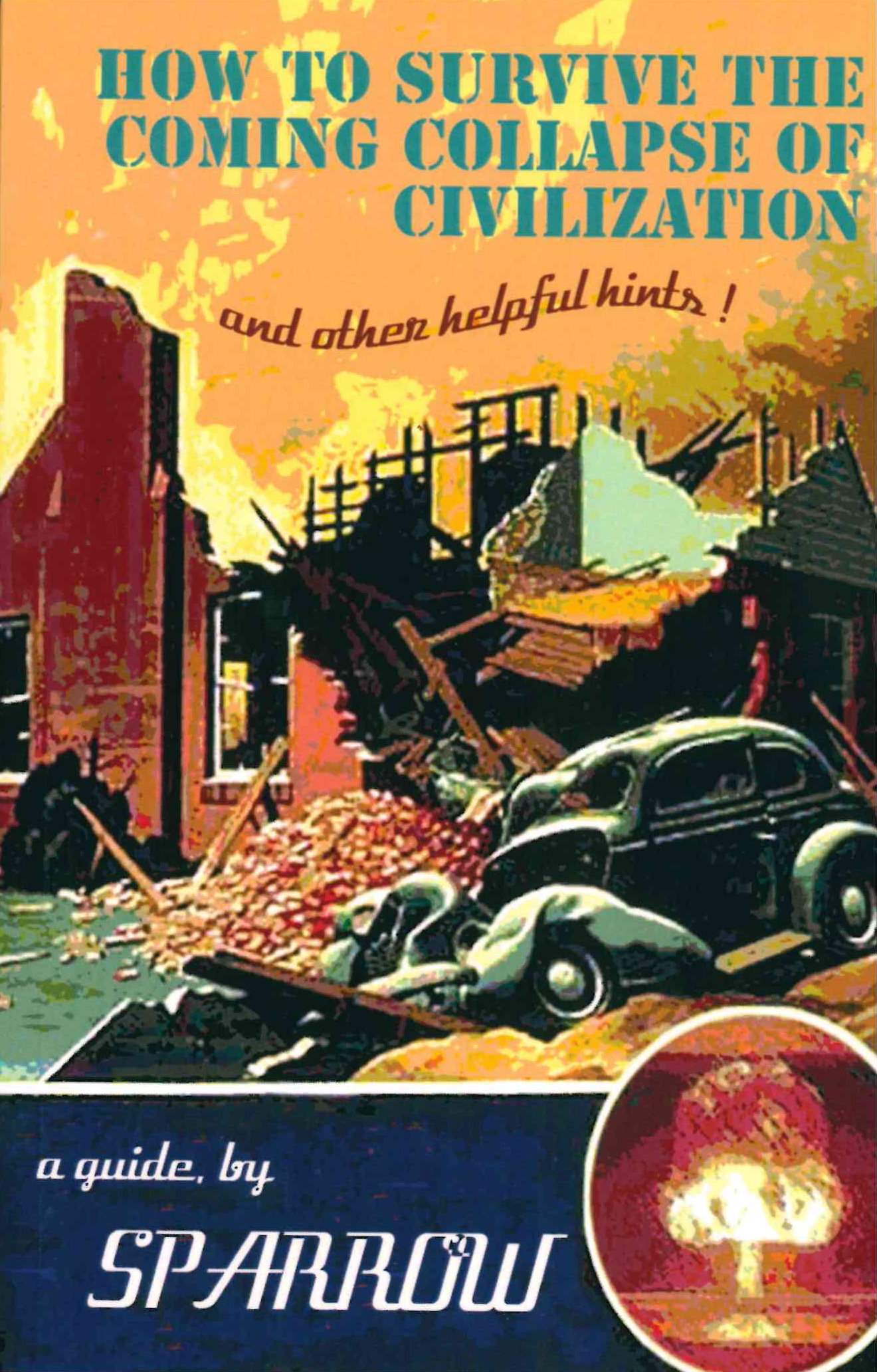
Humans
- Sparrow (author)
- Elæ Moss (artist)
ISBN
978-0986050558Page count
170Keywords
Poetry, Prose, Essays, Nonfiction, Non-Fiction, Environment, Environmental Literature, Hybrid, Post-Apocalypse, Guide, Politics, Political, Anti-Capitalism, Post-Capitalism, Anarchy, Nature, Natural WorldPublication date
2016Language(s)
EnglishPublication media type
Print DocumentPublication series
Unlimited EditionsHow To Survive The Coming Collapse of Civilization (and Other Helpful Hints)
Poetry. Literary Nonfiction. Environmental Studies. Hybrid Genre. Everyone knows that Western civilization (and probably Eastern civilization, also) will collapse within the next seven years. The question is: how will you survive? The answer is simple. Follow the advice below, explicitly. If you do so, you will weather the coming storms. I hope to run into you, and your newfound tribe, in a lily-rich meadow after the Apocalypse. Sparrow has reinvented the post-apocalyptic manual. Instead of advising his readers to stockpile food and kill intruders, he emphasizes giving your TV set a Tarot reading and finding rhyming names in the phone book. (There are many other suggestions: 268 in all.) Sparrow guarantees that following his sometimes-eccentric methods will enable you to survive the apocalypse, with your tribe of improvisational nomads. (The optimum number of tribal members is 14, he explains.)
“The names that come to mind are S. J. Perelman, Robert Benchley, James Thurber — and not just because they’re dead. Or Woody Allen — if he’d never made any films, just the little prose pieces. Everyone thinks of Sparrow (the poet and pop star) as a Communist Republican Jewish Tantrik Yogi Hippie — more a symptom of post-modernism than a practitioner. Yet [Sparrow] reveals himself rooted in tradition: New Yorker as sly wiseguy, a line going all the way back to our ur-ironist, Father Knickerbocker.” — Hakim Bey
“Sparrow’s harvest of advice, wisdom, fake wisdom, and miniature poems is eccentric and funny, yes, but also thoughtful, politically engaged, and generous: Sparrow sees our familiar world from another angle, he pays attention to its peculiar beauties, and he wakes us up. HOW TO SURVIVE is a pleasure to read, read aloud to a friend, and think about later.” — Lydia Davis
“I love how Sparrow occupies time — specifically my time. His genius is his pleasure and that pleasure is a roar and a sigh and a long walk against capitalism. I could read his thoughts until I die. I’m sure I will.” — Leopoldine Core
“God knows we need this guide which is why He sent Sparrow to dwell among us. Is it Zen? Is it ‘deterritorialization’? Has the world’s navel ever been rubbed like this? If wit can save the world from itself, this collection of tricks, poems, and fake wisdom will surely achieve that. Even if wit cannot save the world at least you will die laughing as the gentle anarchist allows you to see what you always knew but didn’t know you knew.” — Mick Taussig
About the Contributor(s)
Elæ Moss is a multimodal artist-researcher, curator, designer, and educator. Seeking Speculative Solidarities, they employ analog and digital media to investigate human, institutional and ecological systems and to iterate open source strategies for ecological and social change. Recent projects have shown at La Mama Galleria, EFA Project Space, STWST/Ars Electronica, Usdan Gallery, Judson Church, the Segal Center, SOHO20, Dixon Place, and the Exponential Festival, among others. Select publications include Big Echo, Tagvverk, Vestiges, Matters of Feminist Practice, The Transgender Narratives Anthology, Choice Words: Writers on Abortion, The Brooklyn Poets Anthology, and Resist Much, Obey Little: Inaugural Poems to the Resistance. Books include Ground, Blood Altas, Overview Effect, Sweet and Low: Indefinite Singular, Bodies of Work, and The Precarity Bodyhacking Work-Book and Guide. Moss is a Professor at Pratt Institute, and the developer / founder of the Operating System + Liminal Lab. More at: https://onlywhatican.net and https://theoperatingsystem.org.



